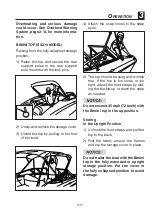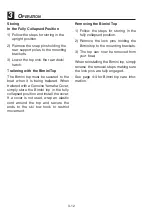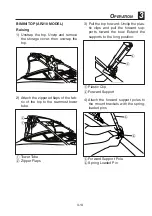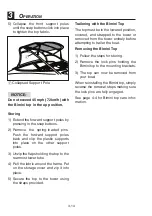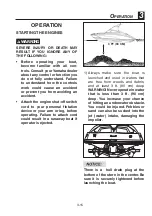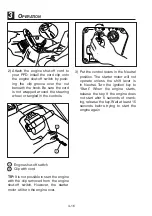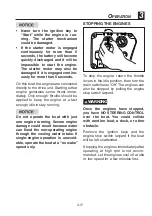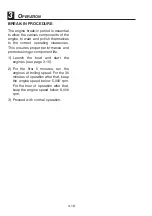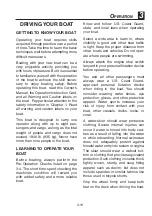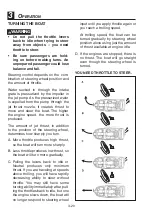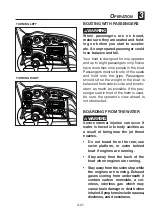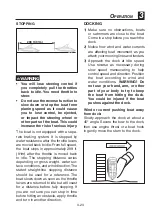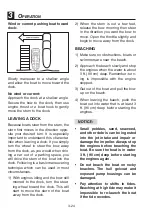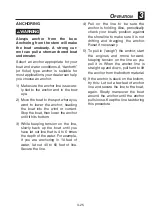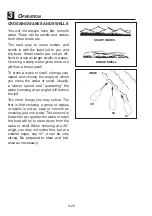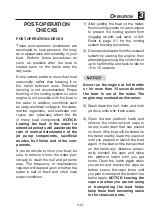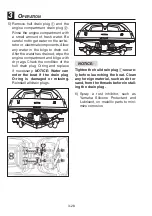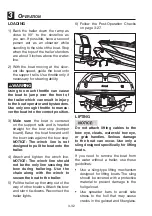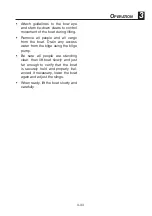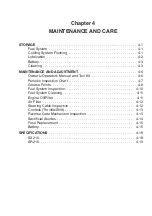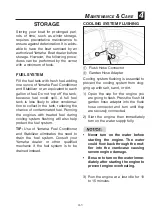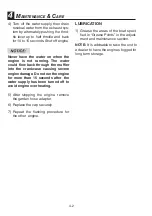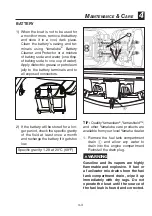
3
O
PERATION
3-24
Wind or current pushing boat toward
dock:
Slowly maneuver to a shallow angle
and allow the boat to move toward the
dock.
No wind or current:
Approach the dock at a shallow angle.
Secure the bow to the dock, then use
engine thrust or a boat hook to gently
move the stern to the dock.
LEAVING A DOCK
Because boats steer from the stern, the
stern first moves in the direction oppo-
site your desired turn. It is especially
important to understand this character-
istic when leaving a dock. If you simply
turn the wheel to steer the bow away
from the dock, as you would when driv-
ing a car out of a parking space, you
will drive the stern of the boat into the
dock. Following is a basic maneuvering
technique which can be used in most
circumstances.
1) With engines idling and the bow still
moored to the dock, turn the steer-
ing wheel toward the dock. This will
start to move the stern of the boat
away from the dock.
2) When the stern is out a few feet,
release the bow mooring then steer
in the direction you want the bow to
move. Open the throttle slightly and
begin to move away from the dock.
BEACHING
1) Make sure no obstructions, boats or
swimmers are near the beach.
2) Approach the beach slowly and stop
the engines when the water is about
3 ft. (90 cm) deep. Remember: turn-
ing is impossible with the engine
stopped.
3) Get out of the boat and pull the bow
up on the beach.
4) When leaving the beach, push the
boat out into water that is at least 3
ft. (90 cm) deep before starting the
engines.
•
Small pebbles, sand, seaweed,
and other debris can be ingested
into the jet intake and impair or
damage the impeller. Always stop
the engines before beaching the
boat. Be sure the boat is in water
3 ft. (90 cm) deep before starting
the engines again.
•
Do not beach the boat on rocky
beaches. The hull gelcoat and
exposed pump housings can be
damaged.
•
Pay attention to shifts in tides.
Beaching at high tide may make it
impossible to re-launch the boat
if the tide recedes.


